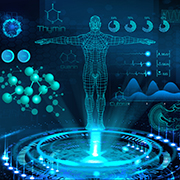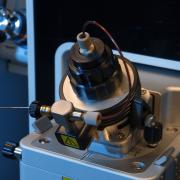The BMM Division Infrastructure
The Metabolite Medicine division will facilitate the analysis of specific metabolic signatures in environmental, clinical and cell culture samples, learn about their mechanism of action and develop computational tools for sophisticated data analysis including machine learning, all under one roof.
Due to the complexity and the dynamic nature of the metabolome, a combination of highly sensitive and accurate analytical platforms is needed to cover the full spectrum of metabolites in different organisms, tissues, or fluids. The most commonly employed method is mass spectrometry (MS), which offers a quantitative analysis of metabolites with unparalleled sensitivity and selectivity.
Global Metabolomics |
Targeted Assays |
Bioinformatics |
 |
 |
 |
|
|
|
|
The use of tandem mass spectrometry (MS/MS) provides highly sensitive and quantitative information but requires a reduction of sample complexity. Thus, the coupling of liquid chromatography (LC) to MS/MS (LC-MS/MS) is required to facilitate metabolite identification and quantitation by reducing sample complexity and allowing metabolite separation prior to detection. Metabolomics examination includes two complementary approaches to address this technical challenge and provide a comprehensive solution: targeted and global, untargeted approach.
The targeted approach focuses on the analysis of specific groups of metabolites and allows for their exact quantification, while the untargeted approach identifies changes in the complete metabolome and provides relative differences in levels of metabolites. The combination of both methods in iterative cycles facilitates both discovery and hypothesis-driven research, supported by the confident quantitation of the relevant metabolites.





